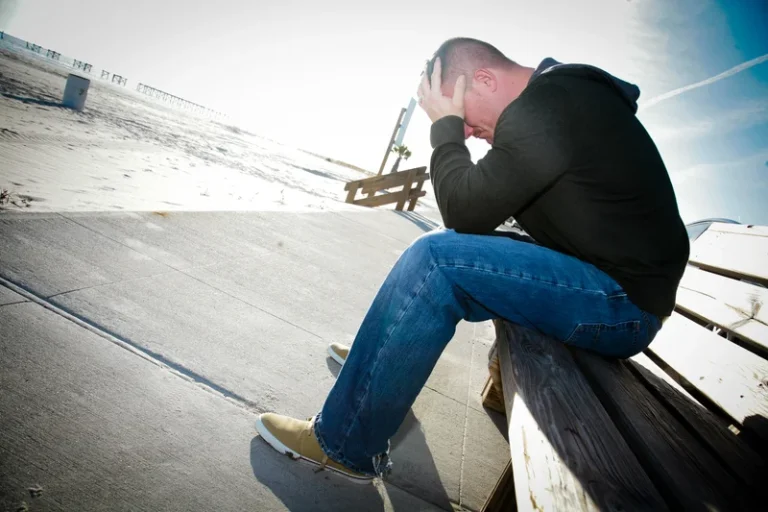
Shame and guilt affect your recovery experience in different ways, though they’re closely connected. Shame creates a feeling that you’re inherently flawed (“I am bad”). Guilt, on the other hand, focuses on specific actions https://ecosoberhouse.com/ (“I did something bad”). This difference is significant because it determines how you approach your healing process. Shame and guilt are two of the heaviest emotional burdens people face during recovery.
Q: How can I stay motivated to address shame and guilt during addiction recovery?
Holding onto resentment and anger only perpetuates the cycle of negativity. Using dialectical behavioral therapy to treat addiction is very popular and successful. Learn Sober living house about acceptance-based and change-focused skills in recovery. Yes, we offer residential treatment programs for individuals requiring a higher level of care and support. Our comfortable and nurturing environment provides a safe space for healing and recovery.
Can You Smoke While Detoxing?
- It does not constitute medical, legal, or other professional advice, and does not replace, therapy or medical treatment.
- What if the guilt their loved one is experiencing becomes too much for them and they start using again?
- One way to get out of the cycle is to own up to what we have done.
- Dwelling on the past will only keep you depressed and unableto enjoy your present life.
- Surrounding oneself with compassionate friends, family, and professionals can significantly alleviate feelings of guilt and shame.
I distinguish those and we’ll talk more about this probably today, Clint, I really make a distinction as to psychology between guilt and remorse on the one hand, and shame on the other. Now, the way that I’m going to talk about shame is that shame is only ever toxic, guilt is necessary guilt frees us to recover. Learn more about our levels of care and our treatment team here! If you are looking for community support, check out our alumni page for updates on sober events and gatherings or reach out to our alumni coordinator Kelly Butzer for more information. If you or a loved one are seeking recovery services that accept your medical insurance, reach out to Infinite Recovery today. Especially suppose there was a valid reason for your behavior in the past that was beyond your control at the time, which sometimes is the case with addictive behavior.
What strategies can help in recovering from guilt and shame?
Caron’s Florida campus is now IN-NETWORK with major insurance providers. Receive weekly insights to help you and your loved ones on your road to recovery. When early on, there’d be no way to explain that from brain science.
- This acceptance empowers individuals to embrace their journey, including their flaws, and focus on recovery and personal transformation.
- Common examples of these negative behaviors include lying, stealing, or neglecting responsibilities, which can irreparably damage relationships.
- You need to dwell on feelings of guilt in recovery, listen to them, then reverse them.
- While there are many resources available online for developing a plan for relapse prevention, it’s essential to seek professional help when going through addiction recovery.
- Incorporating positive affirmations can further transform negative self-talk into empowering narratives.
Understanding Shame and Guilt in Recovery
- Guilt and shame becomes a vicious cycle that goes somethinglike this.
- Through mindfulness exercises, clients learn to notice when negative thoughts or emotions arise, but rather than fighting against them, they simply observe them with curiosity and without judgment.
- Once you stop doing those things or taking actions that cause you to feel remorseful or sorry, the feelings can go away or not have a chance to show themselves.
- It involves negative self-evaluations about one’s identity, leading to feelings of unworthiness, self-loathing, and inadequacy.
- I’ll tell you what, I’ll go back to the example with you and me, Clint, if I accidentally step on your foot, let’s I’m just gonna use that as the example.
- Shame and guilt are commonly experienced emotions for individuals struggling with addiction.
While guilt can push you to make positive changes, it can also weigh you down if you don’t deal with it. You deserve recovery, and with the right resources guilt in recovery and mindset, you can achieve it. Therapy and counseling are not just for those with severe mental health conditions. It can be beneficial for anyone experiencing emotional difficulties. Focus on your recovery journey today rather than dwelling on past mistakes.

Engaging in therapeutic interventions can play a pivotal role in addressing shame. Therapy, such as Cognitive Behavioral Therapy (CBT), can help individuals challenge and reshape negative thought patterns. Therapists guide clients in developing healthier self-perceptions, providing tools to confront and transform feelings of shame. During my time in active addiction, I had to learn to deal with the feeling of guilt and shame for what my life had become.
Understanding Step 9 in AA Recovery

This process ultimately enhances the recovery journey, allowing individuals to build resilience and a healthier self-image. The shame cycle significantly impacts addiction recovery by creating a vicious cycle where feelings of shame lead to substance use, serving as a means of escape. This dynamic perpetuates the cycle, further igniting feelings of shame. Research findings indicate that individuals with higher levels of shame experience slower decreases in stimulant use, as they may engage in avoidance behaviors instead of seeking the help they need. This reaction highlights the different roles of shame and guilt in recovery; while guilt can inspire reparative actions, shame often undermines self-worth, leading to self-sabotage instead of recovery.
The Key Differences Between Guilt & Shame

They can significantly affect one’s mental health, relationships, and overall progress in recovery. 7 Summit Pathways can help you recognize the difference between shame and guilt in addiction recovery and help you take one step at a time to move forward to live a life you love. Our team of professionals can evaluate and address underlying mental health disorders and observe signs of substance use disorders that can be a result of shame or guilt. At 12 South Recovery, we offer comprehensive addiction treatment programs tailored to address the underlying issues contributing to shame and guilt. Our multidisciplinary team of experts provides personalized care and support, guiding individuals towards lasting recovery and emotional well-being.

Why Setting Boundaries is Important in Mental Health Treatment
They may yearn for change yet feel ensnared by their dependence. This practice encourages individuals to treat themselves with kindness during challenging times, counteracting negative self-talk that often accompanies guilt. Engaging in guided meditations that invite self-reflection can also assist in processing feelings of shame and promote resilience. The interplay between these feelings can severely impede progress in recovery. Excessive guilt can trigger relapse, as individuals may seek to alleviate their painful emotions through substance use. On the other hand, shame can prompt isolation and avoidance, making it more challenging to seek the support needed for recovery.